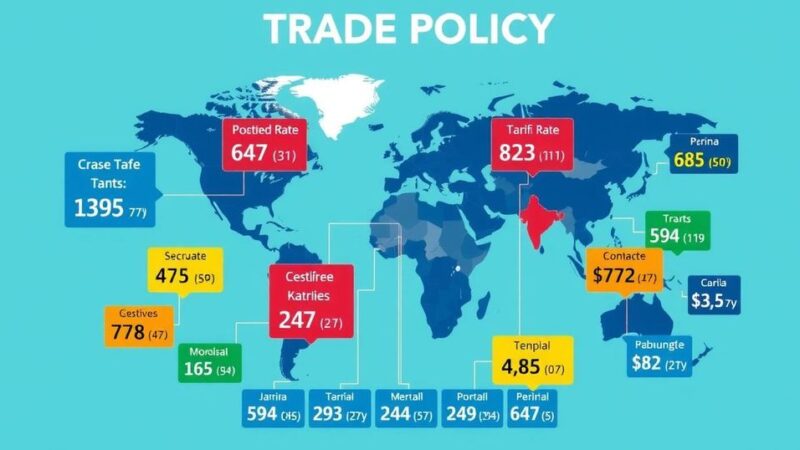Kenya is set to negotiate a new loan with the IMF, abandoning its current program due to challenges from rising debt repayment costs. The IMF confirmed it received this request and discussions will continue. The cessation of the ninth review led to a decline in Kenyan dollar bonds as the country struggles with economic challenges and a high debt-to-GDP ratio of 65.7%.
Kenya has decided to negotiate a new lending agreement with the International Monetary Fund (IMF) while discontinuing its current financial program due to economic difficulties associated with rising debt repayment costs. The country’s financial distress stems from years of significant government borrowing, and it has relied on IMF assistance to manage its escalating debt burden.
Haimanot Teferra, the IMF’s mission chief, indicated that the organization has received Kenya’s official request for a new program and that discussions will continue. Following a recent visit to Nairobi, the IMF stated that both parties had agreed to end the ninth review of the existing Extended Fund Facility (EFF) and Extended Credit Facility (ECF) programs.
Currently, the ongoing $3.6 billion EFF/ECF arrangement, expected to conclude next month, has disbursed $3.12 billion, with an anticipated additional $480 million contingent on the continuation of the ninth review. However, specific implications of discontinuing the review were not clarified by either the IMF or Kenyan officials.
This development led to a decline in Kenyan dollar bonds, as the 2032 and 2048 maturities each lost over one cent, trading at 90.136 and 80.173 cents on the dollar, respectively; some maturities fell to lows not seen in six months. Notably, the IMF did not mention Kenya’s Resilience and Sustainability Facility, approved in July 2023, under which $180.4 million had been disbursed by October last year from a total of $541.3 million.
While the specifics of the new program remain uncertain—particularly concerning direct lending versus advisory support—Kenya faces ongoing economic challenges stemming from recent anti-tax protests and disagreements over borrowing, including a contentious loan from the United Arab Emirates. The government is pursuing alternative funding sources, focusing on increasing domestic revenue collection to fulfill debt obligations and finance critical sectors like climate adaptation.
As of June 2023, Kenya’s debt-to-GDP ratio stood at 65.7%, exceeding the recommended sustainable level of 55%. The country joins other African nations, such as Ivory Coast and Angola, in issuing bonds aimed at refinancing maturing debts and protecting essential public expenditures, including healthcare services.
Kenya’s abandonment of its existing IMF program signifies a response to pressing economic challenges and escalating debt concerns. The request for a new agreement underscores the nation’s ongoing struggle with financial instability amid rising debt levels, leading to strategic adjustments, including exploring alternative funding avenues. This situation highlights the delicate balance required in managing fiscal health while addressing pressing economic needs.
Original Source: newscentral.africa






